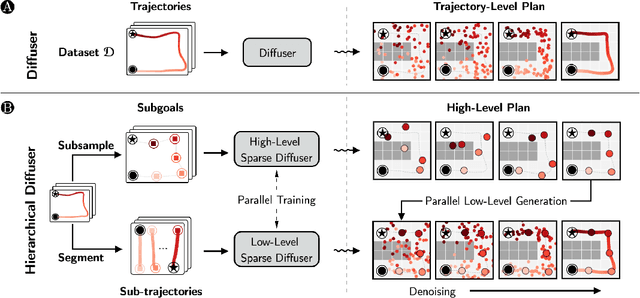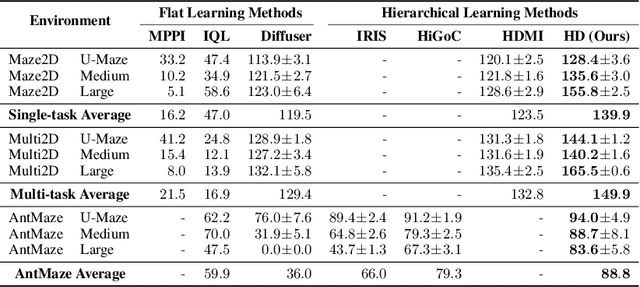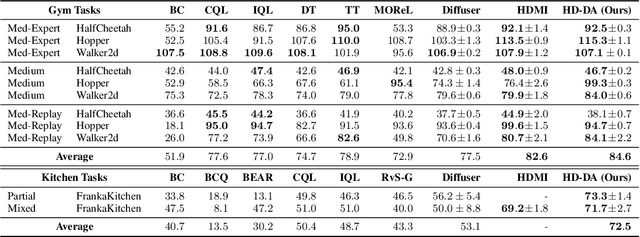Simple Hierarchical Planning with Diffusion
Paper and Code
Jan 05, 2024



Diffusion-based generative methods have proven effective in modeling trajectories with offline datasets. However, they often face computational challenges and can falter in generalization, especially in capturing temporal abstractions for long-horizon tasks. To overcome this, we introduce the Hierarchical Diffuser, a simple, fast, yet surprisingly effective planning method combining the advantages of hierarchical and diffusion-based planning. Our model adopts a "jumpy" planning strategy at the higher level, which allows it to have a larger receptive field but at a lower computational cost -- a crucial factor for diffusion-based planning methods, as we have empirically verified. Additionally, the jumpy sub-goals guide our low-level planner, facilitating a fine-tuning stage and further improving our approach's effectiveness. We conducted empirical evaluations on standard offline reinforcement learning benchmarks, demonstrating our method's superior performance and efficiency in terms of training and planning speed compared to the non-hierarchical Diffuser as well as other hierarchical planning methods. Moreover, we explore our model's generalization capability, particularly on how our method improves generalization capabilities on compositional out-of-distribution tasks.
 Add to Chrome
Add to Chrome Add to Firefox
Add to Firefox Add to Edge
Add to Edge